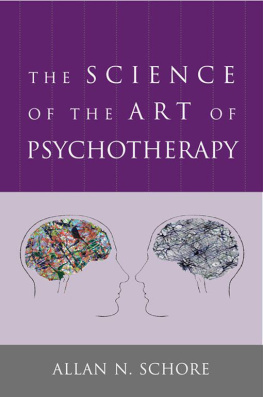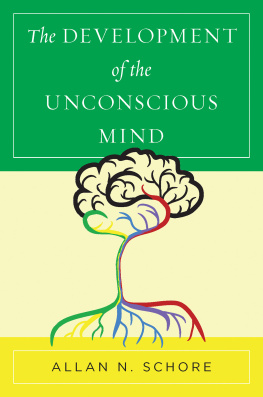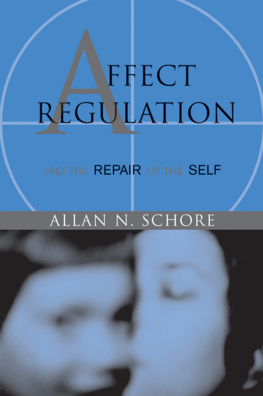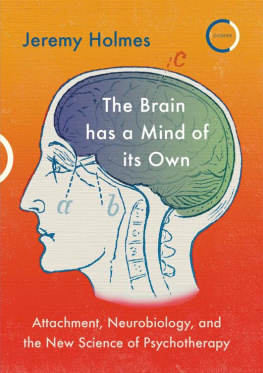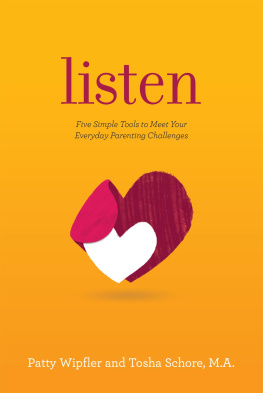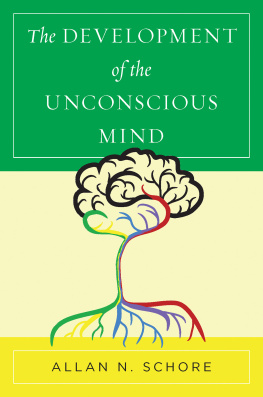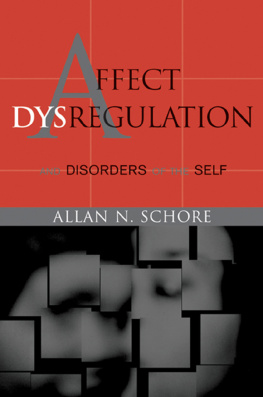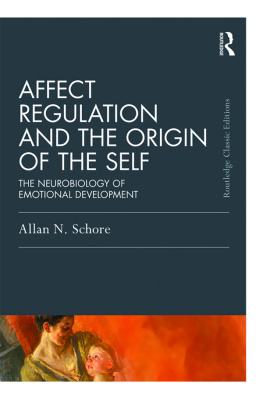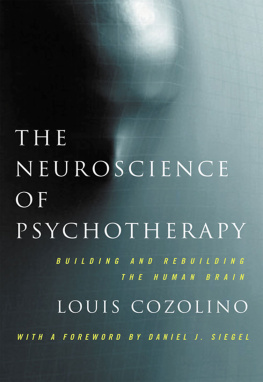Schore - Right Brain Psychotherapy
Here you can read online Schore - Right Brain Psychotherapy full text of the book (entire story) in english for free. Download pdf and epub, get meaning, cover and reviews about this ebook. year: 2019, publisher: W. W. Norton & Company, genre: Romance novel. Description of the work, (preface) as well as reviews are available. Best literature library LitArk.com created for fans of good reading and offers a wide selection of genres:
Romance novel
Science fiction
Adventure
Detective
Science
History
Home and family
Prose
Art
Politics
Computer
Non-fiction
Religion
Business
Children
Humor
Choose a favorite category and find really read worthwhile books. Enjoy immersion in the world of imagination, feel the emotions of the characters or learn something new for yourself, make an fascinating discovery.

- Book:Right Brain Psychotherapy
- Author:
- Publisher:W. W. Norton & Company
- Genre:
- Year:2019
- Rating:4 / 5
- Favourites:Add to favourites
- Your mark:
- 80
- 1
- 2
- 3
- 4
- 5
Right Brain Psychotherapy: summary, description and annotation
We offer to read an annotation, description, summary or preface (depends on what the author of the book "Right Brain Psychotherapy" wrote himself). If you haven't found the necessary information about the book — write in the comments, we will try to find it.
Schore: author's other books
Who wrote Right Brain Psychotherapy? Find out the surname, the name of the author of the book and a list of all author's works by series.
Right Brain Psychotherapy — read online for free the complete book (whole text) full work
Below is the text of the book, divided by pages. System saving the place of the last page read, allows you to conveniently read the book "Right Brain Psychotherapy" online for free, without having to search again every time where you left off. Put a bookmark, and you can go to the page where you finished reading at any time.
Font size:
Interval:
Bookmark:
Right Brain
Psychotherapy
ALLAN N. SCHORE

W. W. Norton & Company
Independent Publishers Since 1923
New York London
A NORTON PROFESSIONAL BOOK
The Norton Series on Interpersonal Neurobiology
Louis Cozolino, PhD, Series Editor
Allan N. Schore, PhD, Series Editor, 20072014
Daniel J. Siegel, MD, Founding Editor
The field of mental health is in a tremendously exciting period of growth and conceptual reorganization. Independent findings from a variety of scientific endeavors are converging in an interdisciplinary view of the mind and mental well-being. An interpersonal neurobiology of human development enables us to understand that the structure and function of the mind and brain are shaped by experiences, especially those involving emotional relationships.
The Norton Series on Interpersonal Neurobiology provides cutting-edge, multidisciplinary views that further our understanding of the complex neurobiology of the human mind. By drawing on a wide range of traditionally independent fields of researchsuch as neurobiology, genetics, memory, attachment, complex systems, anthropology, and evolutionary psychologythese texts offer mental health professionals a review and synthesis of scientific findings often inaccessible to clinicians. The books advance our understanding of human experience by finding the unity of knowledge, or consilience, that emerges with the translation of findings from numerous domains of study into a common language and conceptual framework. The series integrates the best of modern science with the healing art of psychotherapy.
The important thing is not to stop questioning. Curiosity has its own reason for existing. One cannot help but be in awe when he contemplates the mysteries of eternity, of life, of the marvelous structure of reality. It is enough if one tries merely to comprehend a little of this mystery every day. Never lose a holy curiosity.
Albert Einstein
To diligent practitioners of the science of the art of psychotherapy

Contents
Right Brain
Psychotherapy
T HIS BOOK, like all books in the Norton Series on Interpersonal Neurobiology, begins with a mission statement opposite the title page: An interpersonal neurobiology of human development enables us to understand that the structure and function of the mind and brain are shaped by experiences, especially those involving emotional relationships. Note the explicit reference to affective processes. I suggest that the series, for which I have served as editor, has contributed to the current intense interest in affect and affect regulation in psychotherapy among clinicians and researchers. The definition also describes the primacy of emotional well-being in all developmental periods, including infancy. My own ongoing work on the adaptive functions of the emotional right brain describes not only affect and affect regulation within minds and brains via a one-person psychology, but also the communication and interactive regulation of affects between minds and brains and the perspective of a two-person psychology. As applied to the Norton organizing principle, social interactions between brains shape emotional circuits within brains, especially in early critical periods when brain circuits are maturing. More specifically, I continue to offer evidence in this book, Right Brain Psychotherapy , and the companion volume, The Development of the Unconscious Mind , that emotional interactions reflect right brain-to-right brain affective communication in early development, where the mother shapes limbic-autonomic circuits in the infants early developing right hemisphere. The essential right brain functions of communication and interactive regulation thus refer to two-person psychobiological interaction, as expressed in dynamic interpersonal and intersubjective contexts.
That said, I propose that the series definition is incomplete in describing the fundamental focus of the field: the exploration of the neurobiological mechanisms that are central factors in development, in psychopathology, and in psychotherapy. These interpersonal mechanisms are expressed in brain-to-brain social interactions and thereby are activated in relational contexts, especially those in which two emotionally communicating right brains are aligned and synchronized. Thus I will argue that there are two basic principles of interpersonal neurobiology, and that the series description needs an update: An interpersonal neurobiology of human development enables us to understand that the structure and function of the mind and brain are shaped by experiences, especially those involving emotional relationships, and to understand the relational mechanisms by which communicating brains align and synchronize their neural activities with other brains . Actually, the latter principle of interbrain synchronization is more fundamentalit acts as an underlying reciprocal psychoneurobiological mechanism by which minds and brains are shaped by other minds and brains. Thus, the self organization of the developing brain occurs in the context of a relationship with another brain, another self (Schore, 1996, p. 60). The operations of this moment-to-moment social synchronization mechanism, central to human bonding and to all later emotional communications including those in the psychotherapeutic relationship, cannot be described in a one-person psychology but can in a dynamic two-person psychology.
At the beginning of my past volume, The Science of the Art of Psychotherapy , I integrated then current neuroscience research and updated clinical data in an opening chapter, Toward a New Paradigm of Psychotherapy (Schore, 2012). Since that time, all forms of psychotherapy have become even more emotionally focused and more relational. Furthermore, neuroscience itself has been undergoing a paradigm shift. This paradigm shift is expressed in advances in brain research from previous studies of a single brain to recent technologies that allow for simultaneous measurement of two brains interacting with each other in real time. I will suggest that the current shift from a one-person to a two-person theoretical perspective can generate an overarching integrated model of the interactive relationships of the dual brain hemispheres and of the unconscious and conscious minds. This current technological leap forward is as important as the 1990s and the emergence of the decade of the brain, the onset of neuroimaging research into emotional, social, and implicit (unconscious) functions, and the appearance of modern developmental, psychological, and psychiatric models grounded in current neuroscience.
Indeed, over the past three decades, my 1994, 2003, and 2012 books have described the progression of the field of interpersonal neurobiology and the generation of heuristic, clinically relevant two-person models of development, psychopathogenesis, and psychotherapy. My 1994 publication Affect Regulation and the Origin of the Self: The Neurobiology of Emotional Development overviewed and synthesized research and clinical data of the past century to generate the first explication of the field of interpersonal neurobiology. This inceptive volume appeared just before the decade of the brain in the mid-1990s, and it offered a two-person psychological description of how the early developing right brain is shaped by early emotional experiences and how this synchronized, spontaneous interpersonal mechanism is expressed in both the attachment and psychotherapeutic relationships. In my subsequent 2003 volume, Affect Regulation and the Repair of the Self , I overviewed the shift from 20th-century neuroscience to 21st-century neuroscience, partly induced by the advent of more complex neuroimaging techniques, especially those exploring the problem of emotion. Looking backward I offered thoughts on the progression of the field by the beginning of this century, and looking forward I suggested where the field needed to go as the technology continued to rapidly change. In the following, I offer a synopsis of the problem of The isolated brain and a one-person psychology, the interacting brain and a two-person psychology, which first appeared in of my 2003 volume,
Next pageFont size:
Interval:
Bookmark:
Similar books «Right Brain Psychotherapy»
Look at similar books to Right Brain Psychotherapy. We have selected literature similar in name and meaning in the hope of providing readers with more options to find new, interesting, not yet read works.
Discussion, reviews of the book Right Brain Psychotherapy and just readers' own opinions. Leave your comments, write what you think about the work, its meaning or the main characters. Specify what exactly you liked and what you didn't like, and why you think so.

